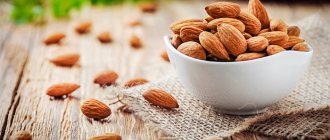Melon belongs to melons and the pumpkin family. If we talk about the species, it should be classified as a vegetable rather than a fruit or berry (unlike watermelon). The homeland of melon is considered to be warm countries - Central Asia and Africa, because for full ripening and the appearance of a large number of varieties, you need sun and warmth. In Europe, this melon crop appeared in the Middle Ages and was immediately liked by local residents.
CALCULATORS FOR THOSE WHO WANT TO LOSE WEIGHT
Calorie content and composition
If we talk about the chemical composition of melon, everything is quite obvious. Just like a watermelon or a cucumber, 90 percent of the melon's pulp is water. This wonderful fruit contains so much water that it has a mild and natural diuretic effect.
The nutritional value of melon consists mainly of carbohydrates (about 7.5 grams per 100 grams of fruit). It contains a very small amount of protein (less than 1 gram per 100 grams of product), but there is no fat at all.
The calorie content of melon is low - about 36 kilocalories per 100 grams, so it is often used in dietary nutrition. However, switching to a mono-diet of melon or eating it in unlimited quantities is not recommended due to its high carbohydrate content.
How many calories do melons of different preparations have?
Also check out these articles
- Pearl barley
- Apple tree Melba
- When to harvest cabbage
- How to select and prepare seed potatoes for planting
Dried melon
Thanks to such a low calorie content, melon is indispensable in diets with increased weight. Due to the presence of natural sugar and plenty of water, this product allows you to remain full for a long time after consuming it. But in what form is it better to eat melon? The above indicator applies exclusively to a fresh product; during processing, the calorie content of melon can change the calorie content.
They eat it fresh, in salads, in the form of jam, jam, juice, desserts, and ice cream. There are also dried melons, healthy and tasty, but they contain much more sugar than the fresh product. Below is a table of caloric content of melons after processing.
| Melon product or dish | Calorie content (in kcal/100 g) |
| Fresh | 35 |
| Dried | 340,79 |
| Dried | 341 |
| Canned | 33 |
| Jam | 169,66 |
| Juice | 47 |
| Candied fruit | 282,67 |
| Melon seeds | 555 |
| Frozen | 34 |
| Melon oil | 899 |
As you can see, the calorie content of melon largely depends on the form in which it is consumed. For people on diets, only fresh, frozen, canned melons and juices are useful, unless there are any contraindications.
Vitamins and minerals
In addition to proteins and carbohydrates, this wonderful product is also rich in various vitamins and minerals. This makes melon a source of valuable substances that are essential for human health.
The beneficial substances of this culture include:
- Potassium plays an important role in the proper functioning of the cardiovascular system. A deficiency of this element can lead to increased fatigue, muscle cramps and dry skin;
- Calcium is very important for healthy bones, teeth and nails. Its deficiency leads to weakening of bone tissue and the development of their fragility, which increases the likelihood of various injuries;
- Magnesium is very important for the nervous system. A lack of magnesium leads to decreased mental activity, sleep problems and anxiety;
- Phosphorus is important for bone formation and normal brain function;
- Zinc promotes the production of various hormones, speeds up metabolism;
- Iron is key for the formation of blood cells;
- Silicon improves the condition of nails and hair, is beneficial for the digestive and nervous system;
- Dietary fiber is very beneficial for the digestive system, improves intestinal motility and eliminates unwanted processes (bloating and heaviness);
- Iodine is very important for the proper functioning of the thyroid gland;
- Nicotinic acid cleanses the body of cholesterol and toxins, speeds up metabolism and helps thin the blood;
- Folic acid. indispensable during preparation and management of pregnancy, as well as during breastfeeding. Increases lactation and quality of breast milk;
- Vitamin B is very useful for the beauty and health of women, promotes the breakdown of other beneficial elements;
- Vitamin E is an immunomodulatory substance that performs various functions;
- Amino acids promote muscle growth, as well as the production of “happiness hormones” - serotonin and dopamine;
- Glucose is an important source of energy and helps keep the body in good shape;
- Ascorbic acid forms the body’s protective barrier against various diseases and increases resistance under increased stress.
Useful properties of melon
Melon fruits are usually consumed chilled without the skin. The edible part of the fruit contains a lot of water (almost 95%) and despite the low calorie content of melon, it is rich in vitamins A, B and C, contains protein, calcium, phosphorus and iron.
The fruit also contains a protein compound - collagen, the lack of which in the body leads to a violation of the integrity of the cellular structure of all connective tissues, and especially the skin. Collagen can accelerate wound healing and maintain skin elasticity.
Melon pulp, which has very limited calories, contains carotenoids, which significantly reduce the risk of cancer, as well as the anticoagulant adenosine, which normalizes blood clotting, thereby reducing the risk of stroke and heart disease.
The high content of water and minerals in the fruit helps the digestion process and reduces acidity, and drinking melon with a little lemon juice helps with gout.
Also, melon, which has very few calories, acts as a diuretic in the body, which has a beneficial effect on the kidneys.
Benefit
The benefits of melon for the body are undeniable. Given such a composition rich in vitamins and macroelements, this product can be used for various purposes:
- For weight loss;
- For anemia or other heart problems;
- For kidney diseases (due to its natural diuretic effect);
- For insomnia and increased nervous irritability;
- For problems with the gastrointestinal tract;
- To increase libido and increase hormone production;
- To improve the condition of skin, hair and nails;
- During pregnancy and lactation.
Calorie content of Kolkhoznitsa melon per 100 grams
We recommend reading our other articles
- How to plant onion sets
- Plum variety Morning
- Gloxinia flower
- How to prune currants correctly in the fall
Melon Kolkhoznitsa is the second most common variety. It has a pleasant, sweet taste and is unpretentious to grow, so it is often planted for personal use, and not just for sale.
Melon Kolkhoznitsa
The calorie content of melon in 100 g is only 30.81 kcal. This is slightly less than that of the Torpedo variety, so this variety is even healthier to eat during diets, but do not forget that it is less sweet. There is not much sugar in it, and although it is tasty, it is still inferior in taste to the Torpedo variety.
Is there any harm?
For some chronic diseases, it is prohibited to use melon for food. For example, if you have gastritis and ulcers, you cannot eat such a product; melon can provoke an exacerbation of diseases. You should not consume this melon crop if you have diseases of the pancreas, kidneys or gall bladder.
Diabetics and people with pre-diabetes should use melon with caution.
Melon is a fruit that is quite sweet and contains a large amount of glucose. Uncontrolled consumption of the fetus can lead to hypervitaminosis and also provoke the development of cardiovascular diseases. The watery pulp can have a laxative and diuretic effect, so it is better not to eat melon at night.
Calorie content of Torpedo melon per 100 grams
Torpedo melon has elongated light yellow fruits, sometimes the skin has a greenish tint with a medium-density mesh. This variety is very common in Russia, Ukraine and neighboring countries.
Melon Torpedo
100 grams of Torpedo melon contain only 35.59 kcal, which makes the variety a good component of any diet. The indicated amount of calories is on average 1.7% of the daily value for the average person. The weight of one Torpedo melon usually ranges from 5 kg and one such melon contains 1750 kcal, which is quite a bit compared to other sweet fruits.
When losing weight
Melon is a dietary product because it contains a small amount of calories. It helps to destroy fat deposits, while nourishing the body with useful substances and saturating it with water.
The fruit is most often used as a monoproduct for fasting days. This diet allows you to lose a few kilograms and cleanse your kidneys. Melon saturates the stomach, so you don’t feel hungry for a long time. Thanks to fiber, the body is cleansed of feces, waste and toxins. For a fasting day you will need 1-1.5 kg of pulp, which should be divided into 5 parts. They must be eaten at regular intervals. During breaks, it is recommended to drink up to 2 liters of water or herbal tea. The mono-diet should last no more than a week.
During the diet, you should not eat dried melon, as it contains a large number of calories.
Melon: health benefits and harms
The fruits of this plant have long been recognized in folk medicine as a real medicine. The beneficial properties (and contraindications) of melon are best known to those suffering from kidney disease: therapists and nephrologists unanimously advise eating this product to treat such pathologies.
- The product strengthens the entire body, improves immunity, calms, and is beneficial for the functioning of the central nervous system.
- The fruits are indicated for stomach diseases, rheumatism, gout, and help with coughs and as an anthelmintic.
- For constipation and hemorrhoids, the seeds are used by boiling them in milk or preparing infusions in boiling water.
- When consumed frequently, the pulp of the false berry works against atherosclerosis, liver diseases, eliminates anemia, and increases potency.
- Melon is used for weight loss: a fasting day on melon is highly effective.
In a product such as melon, health benefits and harms can be combined. For example, melon for type 2 diabetes can cause a spike in sugar. This is due to the fact that the glycemic index of melon is high (65), so patients should eat it with great caution.
Also, you should not eat unripe fruit with acute gastritis - this will increase pain and inflammation.
is contraindicated for:
- Intestinal disorders
- Stomach ulcer
- Acute pancreatitis
You should not eat fruits grown on nitrates - they provoke poisoning.
[adsens3]
A simple recipe for melon jam for the winter
To prepare the treat you need:
- 5 glasses of sugar;
- kilogram of melon;
- 2 glasses of water;
- 2 teaspoons lemon juice;
- if desired, a pinch of saffron.
The recipe for melon jam for the winter is as follows:
- cut the fruit pulp into cubes;
- boil syrup from water and sugar;
- pour boiling syrup over the melon pieces;
- leave for 8 hours;
- then drain the syrup and boil it again;
- pour the pieces again;
- after 8 hours, put the pan on the fire;
- add lemon juice and saffron;
- let it boil, cook for 5 minutes until thickened.
Pour the jam into jars, roll up, or put in the refrigerator.
And you can do it like this:
« Previous entry
Quantity per day
Experts recommend organizing cleansing days once a week. The ideal amount of it per day is 3-4 times half a kilogram. Eating more per day may cause bloating. The best option is to snack on pulp during the day between main meals.
Please note: 2 kilograms of berries per day is quite enough for the normal functioning of the stomach; the methods also need to be detailed. But such use should be limited to a week.
Those who want to lose weight can replace one meal with melon pulp. Just a week of such a delicious melon diet will give you the opportunity to lose up to 3 kilograms. If you wish, the experiment can be repeated, but only after seven days, so you will give your stomach a rest.
Video









